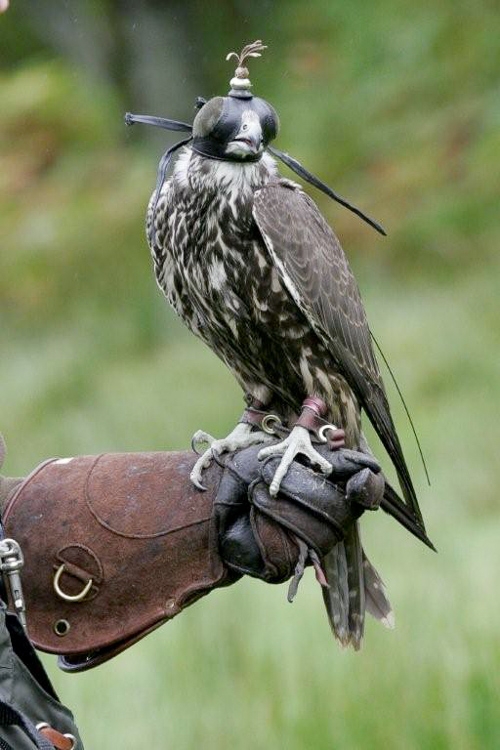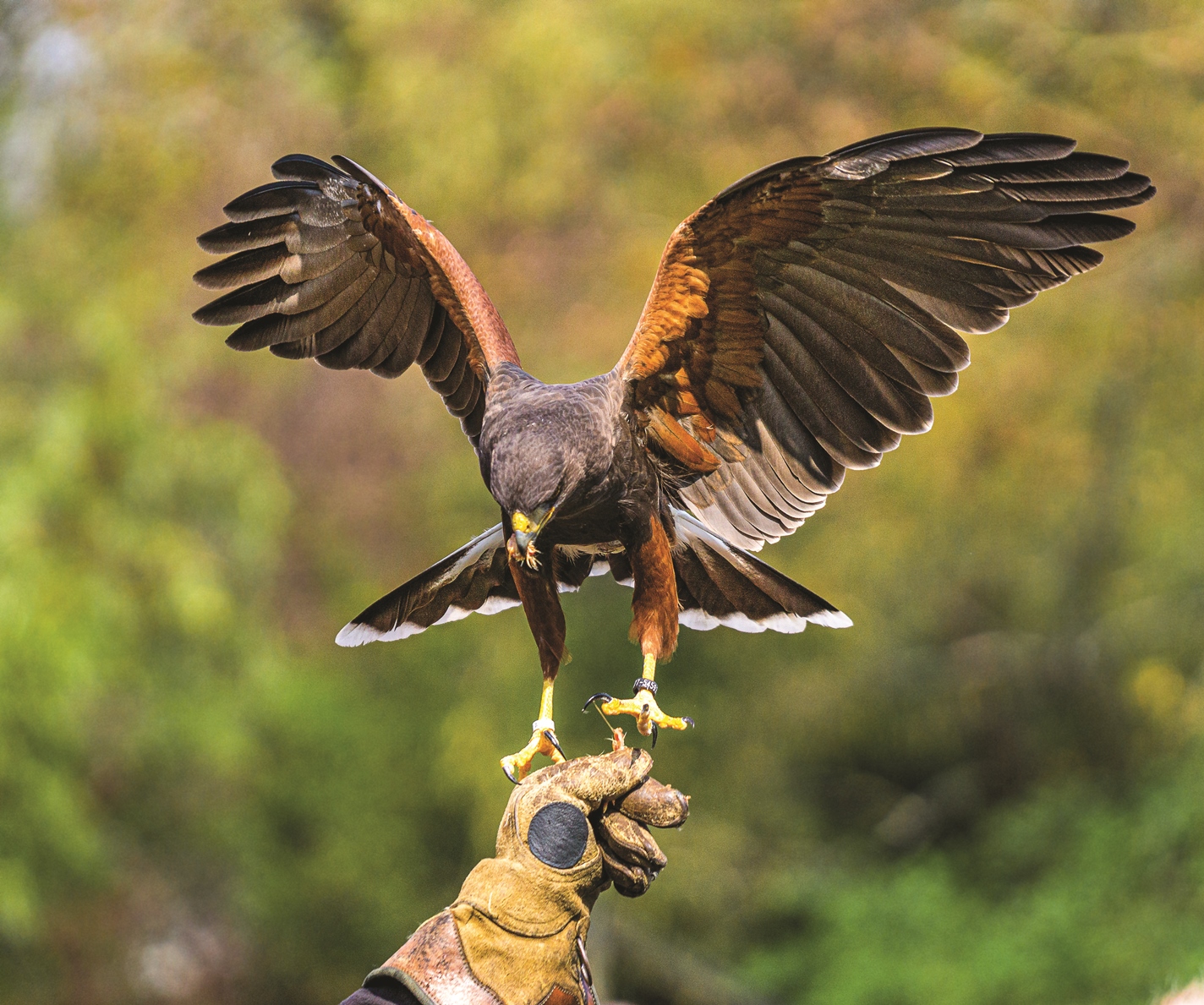
Becoming a Falconer
So you want to be a falconer? Congratulations! You've done this hard part just by finding this community. (We weren't hiding, but there are so few of us that we're just not easy to locate.) You have started a process that will be tedious and time consuming, yet can be very rewarding.
Questions You Must Answer Upfront

- Will you and can you commit part of your waking hours to a creature who at the very best of times will merely tolerate your presence, is as affectionate as a stone, and at the worst of times will cause you heartache and possibly puncture wounds? Can you commit to an average of a half hour a day, every day, and two to four hours on a hunting day, regardless of school, family, or job--for as long as you have your bird?
- Are you 12 years of age or older?
- Are you an outdoors person? Do you like animals? Are you a hunter? Will you be able to hunt three to six times a week during the hunting season on the bird's schedule--not yours? If you have never hunted before, can you learn?
- Will you be able to convince the United States Fish and Wildlife Service; the Mississippi Department of Wildlife, Fisheries, and Parks; and at least one general or master level falconer that you have the drive, dedication, motivation book knowledge, facilities, and equipment to properly house and care for a bird?
- Are you ready to have people view you with awe, amazement, or sometimes anger? Are you ready to be the absolute center of attention when you carry your hawk on your fist? Are you ready for that incredible rush when that wild creature first returns to you, on its own, and is able to fly free but decides to come to you instead?
Answers: Only the first two questions really count. The third one can be learned. The fourth is a lot easier than it sounds, and the last is reason enough.
Other Questions to Consider
- Which bird do you want to begin with?
- What are you going to hunt for, and where are you going to hunt? Falconry kestrels hunt small birds, while the red-tailed hawk hunts ground quarry.
- Where are you going to house the bird?
- How are you going to transport the bird between the house and the hunt?
Tips for Getting Started
 Review The Apprentice's Checklist and the Falconry Info Packet. After you have passed the state's falconry exam, you will need to have your facilities and equipment inspected and approved by a MDWFP biologist or conservation officer. If you can answer "yes" to the items on this checklist, you will pass that inspection.
Review The Apprentice's Checklist and the Falconry Info Packet. After you have passed the state's falconry exam, you will need to have your facilities and equipment inspected and approved by a MDWFP biologist or conservation officer. If you can answer "yes" to the items on this checklist, you will pass that inspection.
Costs
Falconry is not a sport you can do on a small budget, but it does not require you to be independently wealthy, either. The good news is that wild-caught birds cannot be bought or sold (federal law). They may be trapped for falconry during a specific time of the year by permitted individuals or transferred to you at any time of the year. Consequently, your first birds costs nothing directly; however, building the facilities and getting a proper perch, swivel, glove, and so on (see The Apprentice's Checklist for the mandatory requirements) can add up quickly, but most of the costs are one-time fees. A state falconry permit is $100 for 5 years, and a Sportsman's hunting license is $32 per year.
Expectations
What do we expect from you? In your first year, we expect you to trap, man, train, and hunt with a passage bird. Ninety-nine percent of apprentices begin with the red-tailed hawk. Many beginners get the impression that because red-tails and kestrels are used by apprentices, they are easy birds to work with. That is not the case. The only reason those birds are allowed you is because they are successful as a species and are fairly plentiful.
While red-tails are not the easiest birds to work with, they are not difficult to work with, either. Once you successfully hunt with a red-tail, the other ground-oriented species are easy. Once you successfully hunt with a kestrel, you will find the larger falcons to be just that: larger and more impressive, certainly, but not harder to work with.
If the magic does not work, and it becomes obvious to you and/or your sponsor that falconry is just not for you, we expect you to release your bird. Falconry is not for everyone. Having to release your bird because you are not cut out to be a falconer is extremely rare (on the order of less than one a year), but it is better than causing irreparable damage to you or to one of our treasured hunting partners.
Recommended Reading & Next Steps
Get your books: See the Falconry Literature section on the Falconry Program page and the recommended books section on Falconry FAQs, then start studying. These books will help you through the various steps from taking the test to getting a bird. While there are many interesting books on falconry, we recommend only those that have proved useful to becoming a falconer and that are available in print.
When you feel you're ready, schedule an appointment with the MDWFP to take the falconry exam.
Contact Information
Call or write for any other information on falconry:
Mississippi Department of Wildlife, Fisheries, and Parks
Attn: Houston Havens
1505 Eastover Dr.
Jackson, MS 39212
(601)-432-2199